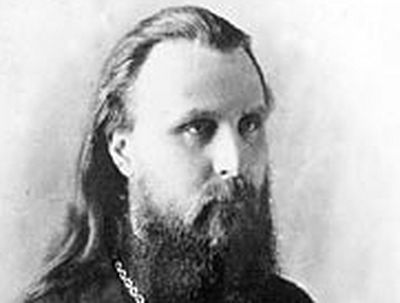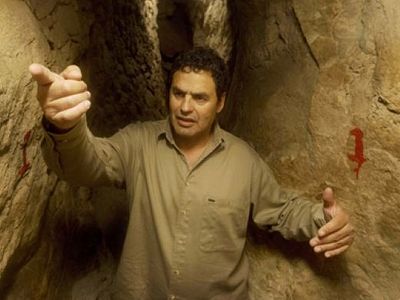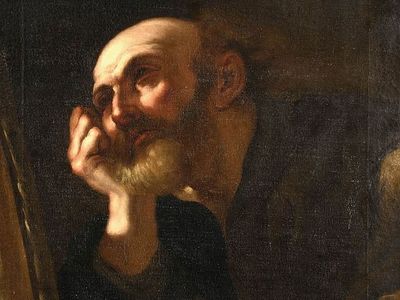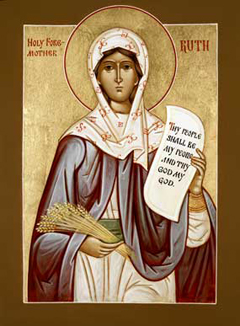
It is very likely that the Septuagint translators moved it to a position between Judges and Kingdoms, where the Christian manuscripts of Holy Scripture have always placed it. This textual move was logical, inasmuch as the Greek text of Ruth begins, When the Judges judged . . .
The moral expectations of the Judges period were so low that the likes of Jephthe and Samson were regarded as men of virtue.
The move was also felicitous, inasmuch as it provided the story of Ruth, not only with a historical setting, but also with its proper theological key. Recall how the Book of Judges ends: In those days there was no king in Israel; each man did what was acceptable in his own eyes.
That is to say, the Book of Ruth commences by placing its tale in the setting of pre-monarchical chaos during the time of the Judges. In making this reference at the beginning, the author of Ruth prompts us to think of the depravity of the Judges period, so that he can contrast the spiritual health in the story he is about to write.
The Book of Ruth ends, however, by prophesying the transforming change yet to come, when Boaz begot Obed, and Obed begot Jesse, and Jesse begot David.
The story of Ruth introduces an approaching glimmer of hope in a setting of moral darkness. Cursing is replaced by blessing, violence by kindness, and perversion by proper order.
The contrast between darkness and the new light in these stories pertains in a significant way to sex. Whereas Judges ends with the sordid tales of the Levite’s gang-raped-to-death concubine and the abduction of the Jabesh virgins, the Book of Ruth portrays what is best described as the romance of Boaz and Ruth.
This “sexual accent” joins Ruth, not only to Judges, but also to Genesis. She is, after all, a Moabitess, a descendant from the incestuous conjunction of drunken Lot and his elder daughter. This detail is germane to Lot’s earlier decision to settle in Sodom. Those Sodomites, like the gang-rapists of Gibeah near the end of Judges, are portrayed as violent sex-offenders. In both accounts sex is expressed in distinctly unseemly ways.
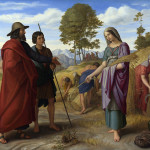
In some sense, Ruth is the answer to Abraham’s prayer.
Ruth, by resolving to join the Israelites—and, especially, by conceiving Boaz’s child in wedlock—reverses her forebear’s ancient choice and his alienation from the children of Abraham. A son of Abraham marries a daughter of Lot.
In her childbearing, moreover, Ruth becomes a paradoxical channel through which Abraham reaches to David, thus fulfilling Jacob’s prophecy of the royalty promised, near the end of Genesis, to the tribe of Judah.
In addition, the famine at the beginning of the Book of Ruth further joins this work to Genesis. Once again, Abraham and Lot come into play: After a famine in the Promised Land forced Abraham to migrate to Egypt, he returned and, with Lot, began to tend his vast accumulation of livestock. When he and Lot discovered, however, they could not jointly support their herds on the available land, they parted from one another, thus beginning the separation not repealed until the appearance of Ruth.
The story of famine at the beginning of Ruth likewise looks back to Jacob, the patriarch with the good sense, when faced with famine, to send his sons down into the Nile Valley, where there was a better chance of finding food. At the beginning of Ruth, in contrast, Elimelech, simply crosses eastward into Moab, where the economic conditions were identical to those in the Promised Land. Why does Elimelech take this improbable step?
The author’s theological answer is: to pick up Ruth and bring her to Bethlehem!
Only thus can the light of the Davidic monarchy bring order to the chaos evident in the Book of Judges.
